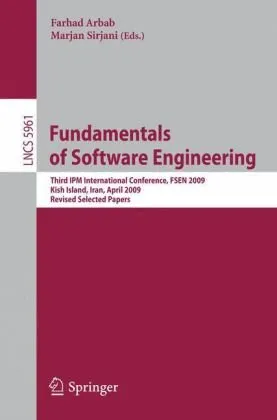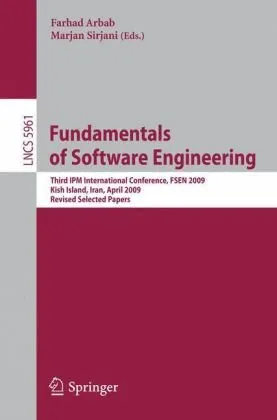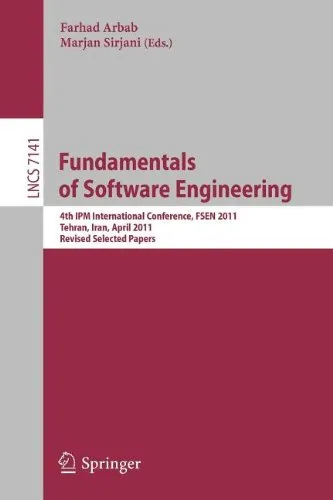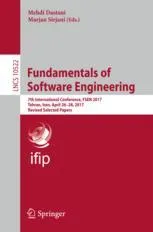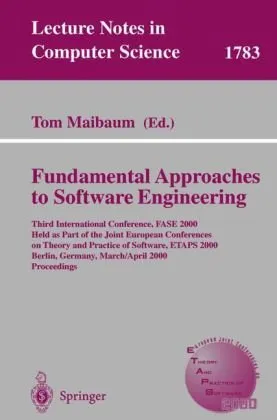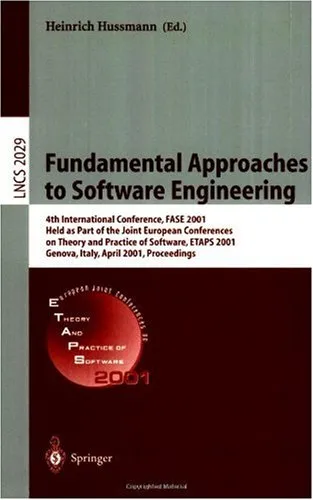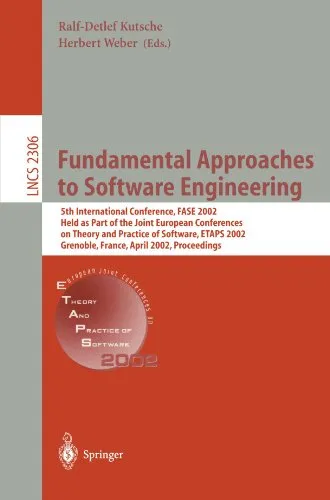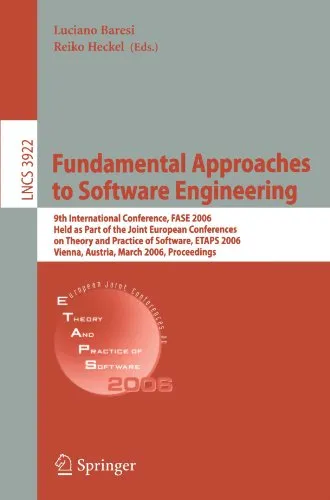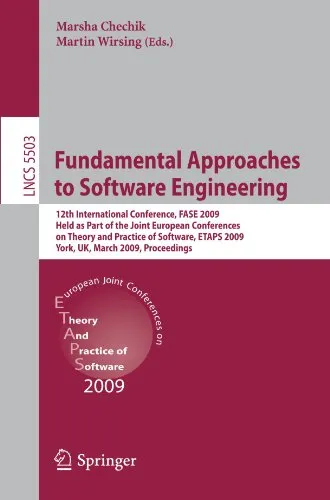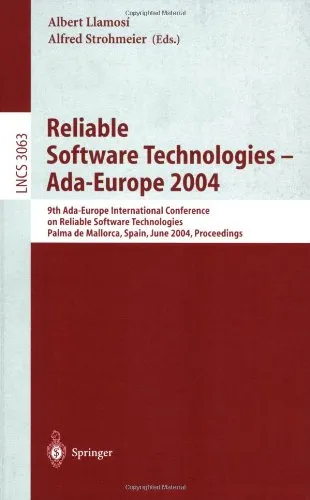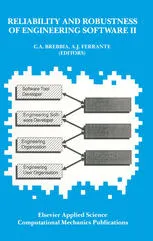Fundamental Approaches to Software Engineering: Second International Conference, FASE’99, Held as Part of the Joint European Conferences on Theory and Practice of Software, ETAPS’99, Amsterdam, The Netherlands, March 22-28, 1999. Proceedings
4.0
Reviews from our users

You Can Ask your questions from this book's AI after Login
Each download or ask from book AI costs 2 points. To earn more free points, please visit the Points Guide Page and complete some valuable actions.Related Refrences:
Introduction
Welcome to the proceedings of the Second International Conference on Fundamental Approaches to Software Engineering (FASE’99), held as part of the Joint European Conferences on Theory and Practice of Software (ETAPS’99) in Amsterdam, The Netherlands, from March 22–28, 1999. This book captures the dynamic discussions, groundbreaking research, and innovative methodologies deliberated upon during this hallmark event.
Software engineering stands as a cornerstone of modern technology, playing a pivotal role in shaping various industries. The need for robust, scalable, and fundamentally sound software systems has never been greater. With FASE’99, we explore the synergy between theoretical foundations and real-world practices, uniting researchers, academics, and practitioners to bridge this critical gap. This volume presents a rich tapestry of ideas that address fundamental challenges, enabling readers to grasp state-of-the-art tools, techniques, and conceptual frameworks central to software engineering today.
Detailed Summary of the Book
This book compiles the proceedings of the FASE’99 conference, featuring numerous high-quality papers selected through meticulous review by a panel of esteemed experts. Covering a broad spectrum of topics, the book advances the field of software engineering by addressing key issues such as software system specification, design, testing, and maintenance. Key thematic areas include methodologies for requirements engineering, the role of formal methods in enhancing software reliability, advancements in software testing strategies, and the integration of tools that streamline development processes.
Each section of the proceedings highlights innovative approaches to long-standing software engineering problems. Topics such as model-based techniques, component-based software architecture, and the influence of programming paradigms are explored in depth. The inclusion of case studies and empirical results provides valuable insights into the practical applications of theoretical concepts, ensuring relevance for both academia and industry professionals.
Key Takeaways
- The critical interplay between theory and practice serves as the foundation for advancing software engineering methodologies.
- Formal approaches to software specification minimize ambiguities, boost reliability, and facilitate verification throughout the software life cycle.
- Leveraging component-based architectures significantly enhances software modularity, maintainability, and reuse.
- Cutting-edge testing strategies, such as model-based testing, are instrumental in ensuring software quality and robustness.
- The development and adoption of automated tools play a crucial role in improving the efficiency and effectiveness of software engineering practices.
Famous Quotes from the Book
"Software engineering thrives at the intersection of clear theories and practical execution, where innovation and rigor coalesce." - Arie van Deursen, Paul Klint, and Chris Verhoef
"A fundamental approach to software engineering is not an option; it is the gateway to building reliable, maintainable, and adaptive systems in an ever-changing digital world." - From the proceedings
Why This Book Matters
The proceedings of FASE’99 stand out as a seminal contribution to the field of software engineering. In today’s fast-paced digital landscape, this book addresses the pressing need for systematic and methodical approaches to software development, which are essential for building resilient systems. By providing invaluable insights into foundational and emerging topics, it serves as a critical resource to software engineers, researchers, and students alike.
The content presented in this book transcends academic discussions, offering practical implications that can shape the future of how software systems are conceived, developed, and maintained. Furthermore, the inclusion of formal methods emphasizes the importance of precision and correctness. Participants of FASE’99, and now readers of this book, are equipped with a deep understanding of the methodological foundations needed to address the complexities of software engineering in real-world applications.
In sum, this book is more than just a collection of conference proceedings—it is a testament to the enduring relevance of rigorous, foundational research and its impact on guiding us toward innovative solutions that redefine the boundaries of what software engineering can achieve.
Free Direct Download
You Can Download this book after Login
Accessing books through legal platforms and public libraries not only supports the rights of authors and publishers but also contributes to the sustainability of reading culture. Before downloading, please take a moment to consider these options.
Find this book on other platforms:
WorldCat helps you find books in libraries worldwide.
See ratings, reviews, and discussions on Goodreads.
Find and buy rare or used books on AbeBooks.
1154
بازدید4.0
امتیاز0
نظر98%
رضایتReviews:
4.0
Based on 0 users review
Questions & Answers
Ask questions about this book or help others by answering
No questions yet. Be the first to ask!

